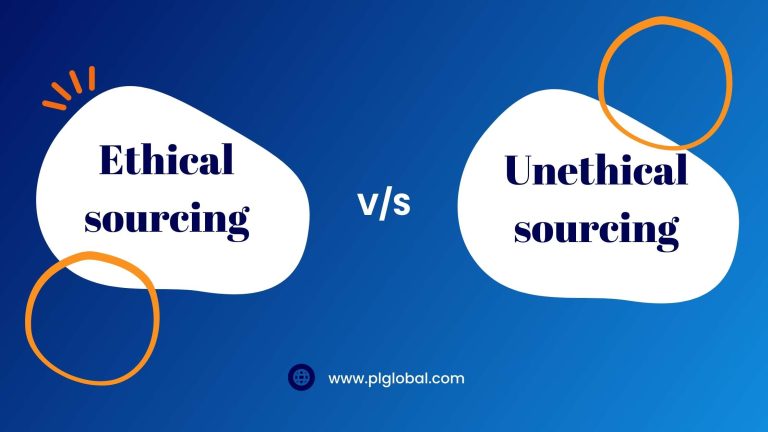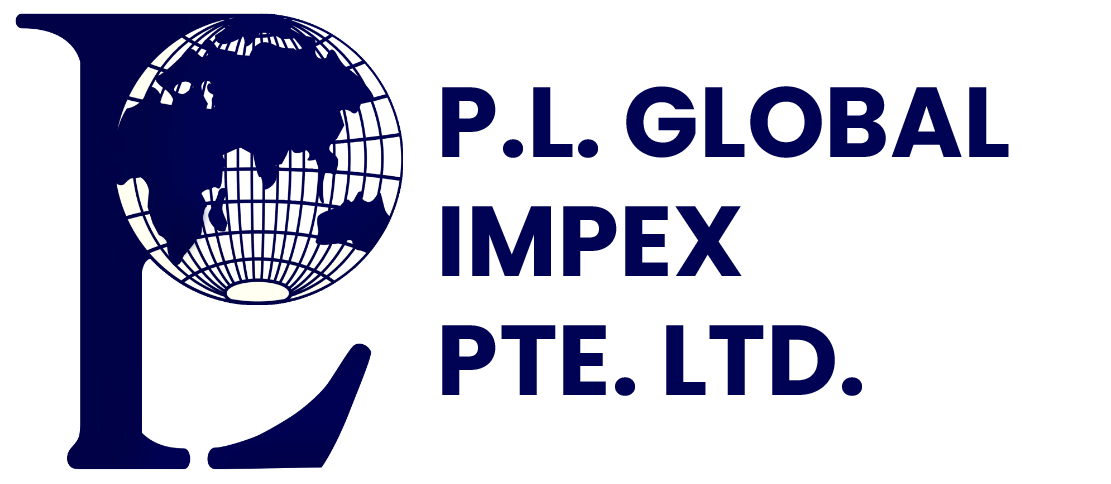Ethical sourcing in the FMCG industry means the products purchased by the consumers are made in such a way that they do not harm the people and the planet.
Even today, in many areas of the world, the raw materials are extracted and turned into finished products in a way that exploits both the labor and the environment. Thus, ethical sourcing has an important role in today’s global economy.
Also, consumers are becoming aware of the products they are using and how their choices are affecting the environment. This rapid shift in consumers’ decision-making while purchasing a product is making companies and brands in the FMCG industry choose ethical ways of sourcing raw materials and producing finished goods.
Ethical sourcing is a vast topic. Continue to read the blog to learn about this topic in detail.

Understanding Ethical Sourcing
Ethical sourcing is a critical component of the FMCG industry because it ensures that the products and materials a company acquires are obtained through sustainable practices without harming the environment or the people.
Sustainability
Sustainability in ethical sourcing revolves around the responsible management of resources to minimize environmental impact and promote long-term ecological health. It involves making decisions that conserve natural resources, reduce waste, and decrease pollution.
Fair Trade
Fairtrade is a framework that seeks to ensure that producers, especially those in developing countries, receive fair compensation for their work and operate under equitable conditions. This involves paying fair wages, providing safe working environments, and supporting community development. Fairtrade practices also empower producers by giving them better trading terms and fostering direct relationships with buyers.
Human Rights
Human rights in ethical sourcing focus on protecting the fundamental rights of workers involved in the production process. This includes ensuring that no child labor or forced labor is used, that workers are treated with respect, and that they work in a non-discriminatory environment. Ethical sourcing requires companies to uphold strict standards against exploitation and abuse, providing a safe and fair workplace for all employees.
Importance of Transparency and Accountability
Transparency ensures that companies openly share information about their sourcing practices, including where materials come from and how products are made. This openness builds trust with consumers, investors, and other stakeholders, who want assurance that companies are genuinely adhering to ethical and sustainable practices. It allows for informed decision-making and fosters confidence in a company’s commitment to responsible operations.
Accountability involves holding companies responsible for their actions and the impacts of their sourcing practices. This includes regular reporting, third-party audits, and adherence to ethical standards and regulations. Accountability mechanisms help ensure that companies meet their stated commitments, address any issues that arise, and continuously improve their practices.
Why Ethical Sourcing Matters in FMCG?
In the Fast-Moving Consumer Goods (FMCG) sector, ethical sourcing is important because of the high volume and rapid turnover of products. FMCG companies often have complex supply chains that span multiple countries and involve numerous suppliers. Ethical sourcing in FMCG focuses on ensuring that these products are produced and distributed in a way that respects environmental sustainability, fair labor practices, and human rights.
Impact of Ethical Sourcing on Brand Reputation and Consumer Trust
Brand Reputation –
For FMCG companies, brand reputation is closely linked to ethical sourcing. Consumers today are increasingly aware of and concerned about the origins of the products they buy. Brands that prioritize ethical sourcing can differentiate themselves in a crowded market by showcasing their commitment to social and environmental responsibility. This positive reputation can lead to increased brand loyalty, market share, and consumer preference.
Consumer Trust –
Transparency and ethical practices in sourcing build consumer trust. When companies openly communicate about their sourcing practices and demonstrate a commitment to ethical standards, they foster a sense of trust and reliability among consumers. This trust can translate into stronger customer relationships and increased sales, as consumers are more likely to choose products from brands they believe align with their values.

Examples of Ethical vs. Unethical Sourcing Practices in FMCG
Ethical Sourcing Practices:
- Fair Trade Certification: Companies sourcing Fair Trade coffee ensure fair wages and safe conditions for workers.
- Sustainable Packaging: Brands using recyclable or biodegradable packaging reduce environmental impact.
- Responsible Supply Chain Management: Companies conducting regular supplier audits ensure compliance with labor and environmental standards.
Unethical Sourcing Practices:
- Child and Forced Labor: Companies sourcing from suppliers using child or forced labor contribute to human rights abuses.
- Environmental Degradation: Companies involved in deforestation or pollution harm the environment.
- Lack of Transparency: Companies that do not disclose sourcing information or address concerns may be hiding unethical practices.
The Role of Consumer Demand in Ethical Sourcing
Consumers today are increasingly aware of the social, environmental, and ethical implications of their purchases. They actively seek out products that align with their values, such as sustainability, fair trade, and ethical labor practices. This shift in consumer preferences has led to a growing demand for transparency and responsibility from brands.
As a result, FMCG companies are adapting to these demands by adopting ethical sourcing practices to maintain and attract customers. Brands that fail to meet these expectations risk losing market share to competitors who demonstrate a commitment to ethical standards.
Case Studies: Brands Leading the Shift
1. Unilever
- Ethical Practice: Unilever sources palm oil sustainably and helps smallholder farmers through its Sustainable Living Plan.
- Business Outcomes: Unilever’s commitment to ethical sourcing has boosted its reputation and consumer trust. This has led to stronger market presence and stable growth, while also reducing risks related to supply chain issues.
2. Nestlé
- Ethical Practice: Nestlé’s Cocoa Plan and Nescafé Plan ensure responsible sourcing of cocoa and coffee, improving farmers’ lives and promoting sustainability.
- Business Outcomes: These practices have enhanced Nestlé’s brand image and attracted consumers who value ethical products. This has helped Nestlé gain market share and maintain consumer loyalty.
3. Procter & Gamble (P&G)
- Ethical Practice: P&G sources palm oil and paper products responsibly, showing its commitment to sustainability.
- Business Outcomes: P&G’s ethical sourcing has increased customer loyalty and improved its brand reputation. It has also helped the company stand out from competitors and boost sales while managing supply chain and regulatory risks.

Challenges and Opportunities in Ethical Sourcing
Challenges Faced by FMCG Companies
- Complexity of Global Supply Chains: FMCG companies often have intricate global supply chains that span multiple countries and involve numerous suppliers. This complexity makes it difficult to monitor and enforce ethical practices throughout the entire supply chain. Ensuring compliance with ethical standards at every stage—from raw material sourcing to production and distribution—can be a significant challenge.
- Costs Associated with Ethical Sourcing: Implementing ethical sourcing practices can be expensive. Costs may include investing in sustainable materials, conducting thorough supplier audits, and achieving certifications. While these investments are necessary for maintaining ethical standards, they can put financial pressure on companies, especially those with tight margins.
Opportunities for Growth
- Long-Term Financial Benefits: Investing in ethical practices can lead to long-term financial benefits. Companies that adopt sustainable and responsible sourcing often see reduced risks related to supply chain disruptions and regulatory penalties. Additionally, these practices can lead to cost savings through increased efficiency and waste reduction, ultimately contributing to better financial performance over time.
- Opportunities for Brand Loyalty: Ethical sourcing creates opportunities to build strong brand loyalty. Consumers increasingly prefer to buy from companies that align with their values, such as those committed to sustainability and fair trade. Businesses can increase sales and foster brand loyalty by showcasing their dedication to ethical business practices. This will draw in and keep customers who share similar beliefs.

The Future of Ethical Sourcing in FMCG
Trends Shaping the Future
- Blockchain for Transparency: Blockchain technology is emerging as a powerful tool for enhancing supply chain transparency. By creating a secure, immutable ledger of transactions, blockchain enables real-time tracking of products from origin to shelf. This technology helps ensure that ethical practices are adhered to at every stage of the supply chain, providing consumers with verifiable information about the products they purchase.
- Zero-Waste Initiatives: The zero-waste movement is gaining traction as companies seek to minimize waste throughout their supply chains. FMCG companies are adopting practices such as reducing packaging, improving recycling programs, and finding ways to repurpose or reuse materials. These initiatives not only reduce environmental impact but also appeal to consumers who are increasingly concerned about waste and sustainability.
- Regenerative Agriculture: Regenerative agriculture is an emerging trend focused on restoring soil health, increasing biodiversity, and improving water cycles. FMCG companies are beginning to source ingredients from farms that practice regenerative methods, which can lead to more sustainable and resilient food systems. This approach helps improve long-term agricultural productivity and environmental health.
How FMCG Companies Can Adapt
- Implementing Ethical Sourcing Practices: Companies can start by integrating ethical sourcing practices into their core operations. This includes setting clear ethical guidelines, conducting regular supplier audits, and ensuring compliance with sustainability standards. Adopting technologies like blockchain can further enhance transparency and traceability in the supply chain.
- Scaling Ethical Sourcing: To scale ethical sourcing practices, companies should collaborate with suppliers to build capacity and share best practices. Investing in training and resources for suppliers helps them meet ethical standards and improve their own practices. Additionally, setting up scalable systems for tracking and reporting can facilitate the expansion of ethical sourcing efforts.
- Partnerships for Sustainable Sourcing: Forming partnerships with NGOs, industry groups, and other stakeholders can enhance the effectiveness of ethical sourcing initiatives. Collaboration with organizations that specialize in sustainability and ethical practices can provide valuable expertise, resources, and support. These partnerships can also help companies stay ahead of regulatory changes and industry trends.
The Bottom Line
Consumer demand is driving the shift towards ethical sourcing in the FMCG industry, compelling FMCG companies to adopt responsible practices throughout their global supply chain. As consumers increasingly prioritize sustainability and ethical standards, companies are actively implementing transparent, fair, and environmentally friendly sourcing practices. The FMCG industry will likely continue to grow in these areas, with ethical practices becoming central to brand identity and consumer trust. Embracing these changes will help companies align with consumer values and achieve long-term success in a dynamic market.
